
Today we’re sharing the findings from Glimmers - a real-time investigation into technology and civil society. We’ve looked at how communities and charities digitally transformed at speed since March — and what that means for the near future @plotlondon glimmersreport.net 
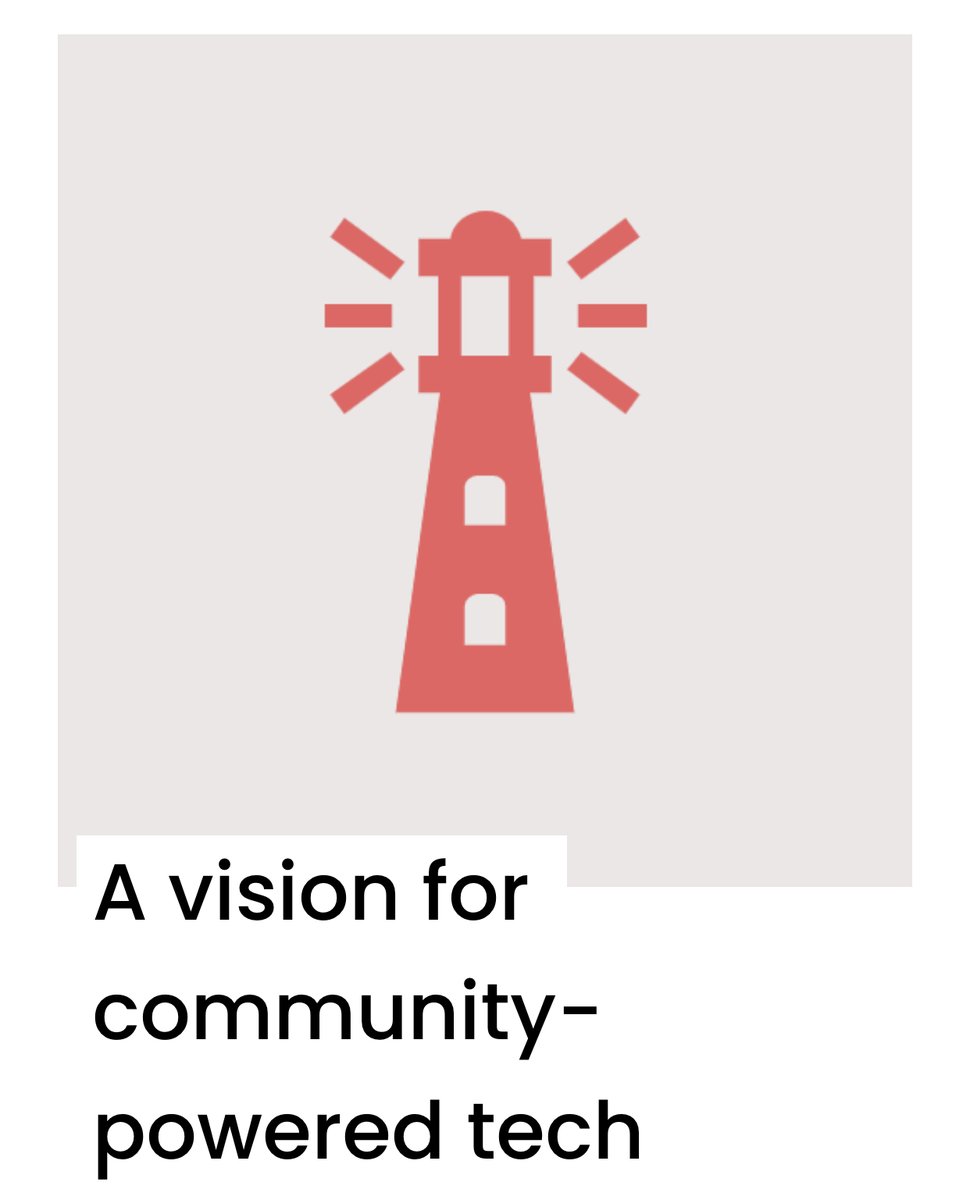
@plotlondon 1. Putting a Zoom on it isn’t enough!
Communities and charities have adapted to digital delivery almost overnight - they’ve been adaptable and inventive, despite being overstretched.
But social capital, serendipity and inclusive design are needed too. glimmersreport.net/report/findings
Communities and charities have adapted to digital delivery almost overnight - they’ve been adaptable and inventive, despite being overstretched.
But social capital, serendipity and inclusive design are needed too. glimmersreport.net/report/findings
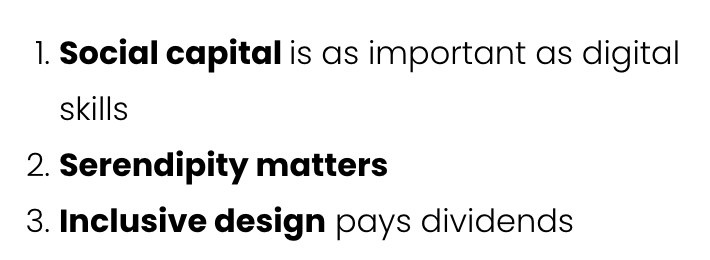
@plotlondon 2. Crisis management isn’t the same as time travel.
Things might look futuristic, but we haven’t really ffwd'd to 2030 - communities have been repurposing the tech, tools and skills they have right now to do amazing things. That’s not sustainable.
glimmersreport.net/report/insight

Things might look futuristic, but we haven’t really ffwd'd to 2030 - communities have been repurposing the tech, tools and skills they have right now to do amazing things. That’s not sustainable.
glimmersreport.net/report/insight

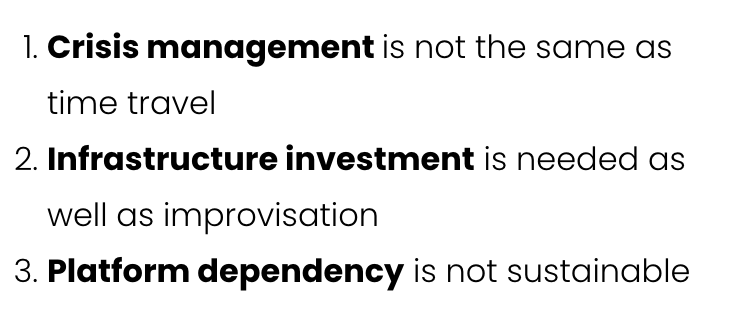
@plotlondon 3. Respond, Recover, Renew
It’s tempting to focus on #buildingbackbetter now, but many communities and charities are still in Response mode. Recovery and reflection is vital before committing to whatever comes next. glimmersreport.net/report/mapping
It’s tempting to focus on #buildingbackbetter now, but many communities and charities are still in Response mode. Recovery and reflection is vital before committing to whatever comes next. glimmersreport.net/report/mapping
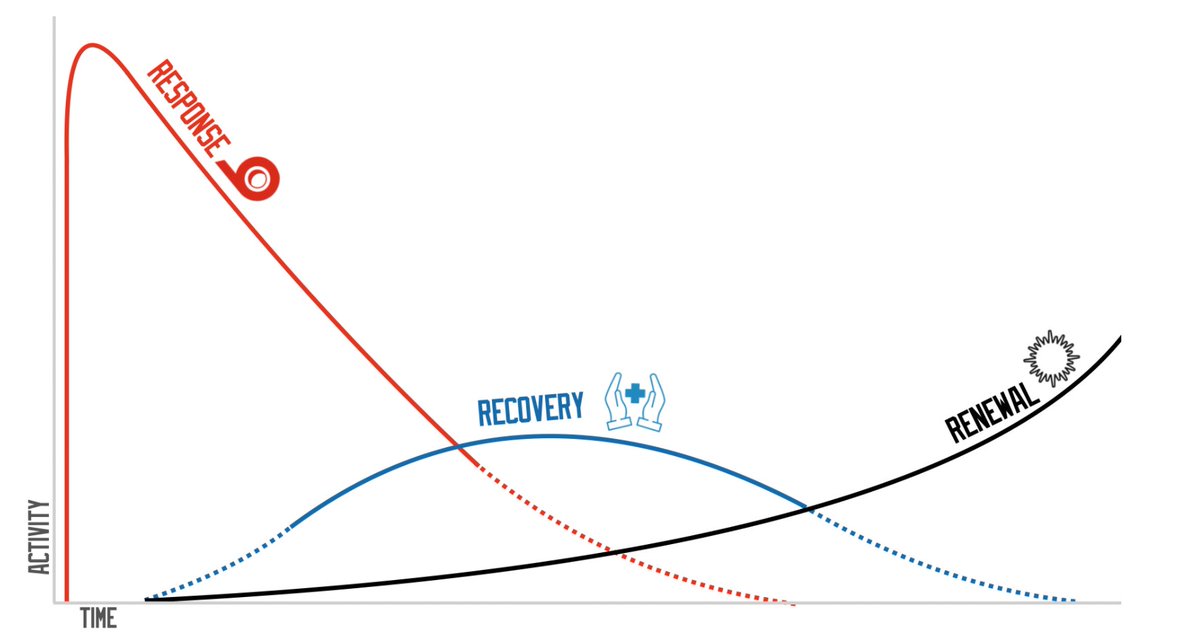
@plotlondon 4. Making Room for Recovery
We’ve created the Glimmers Toolkit, a set of light-weight, thoughtful exercises for teams and organisations who feel ready to explore what recovery looks like and start setting future strategies. glimmersreport.net/toolkit
We’ve created the Glimmers Toolkit, a set of light-weight, thoughtful exercises for teams and organisations who feel ready to explore what recovery looks like and start setting future strategies. glimmersreport.net/toolkit
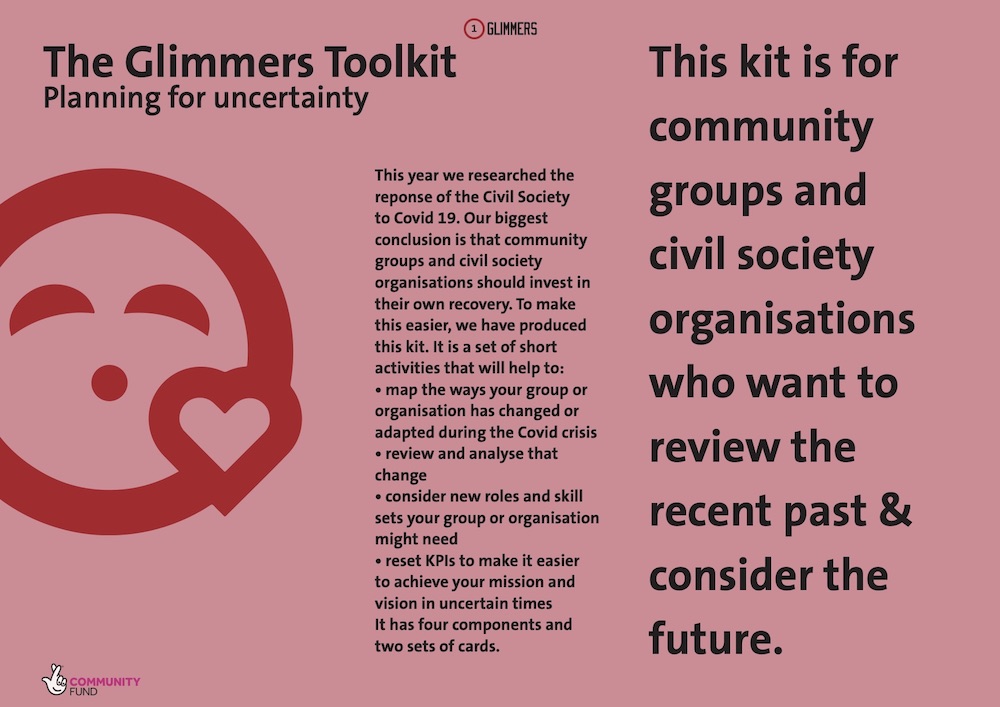
@plotlondon 5. Community-powered tech
Looking ahead: so much change and power can come from this rapid transformation. A digitally engaged civil society could come together and use its collective wisdom to influence and inform how technology is made.
glimmersreport.net/report/communi…
Looking ahead: so much change and power can come from this rapid transformation. A digitally engaged civil society could come together and use its collective wisdom to influence and inform how technology is made.
glimmersreport.net/report/communi…
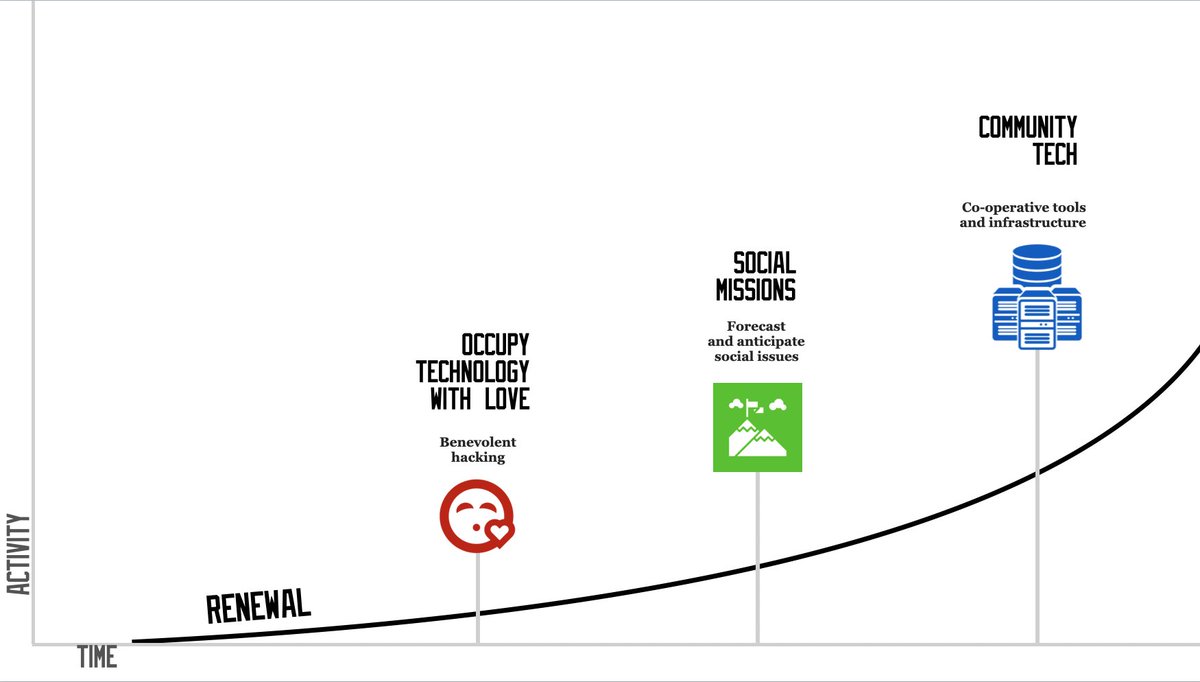
@plotlondon 6. Building a community tech stack
Lastly: communities deserve more than the crumbs from Big Tech. So we’re calling for a community tech stack that is:
*Anti-surveillance
*Safe by design
*Open source
*Priortises problem-solving over profit-making
glimmersreport.net/report/communi…
Lastly: communities deserve more than the crumbs from Big Tech. So we’re calling for a community tech stack that is:
*Anti-surveillance
*Safe by design
*Open source
*Priortises problem-solving over profit-making
glimmersreport.net/report/communi…

@plotlondon More detail on the Glimmers website glimmersreport.net. Thanks to everyone who participated in the research, to @TNLComFund for funding the work, and to @CassieRobinson for brilliant input throughout. Please do read, share and let us know what you think 

• • •
Missing some Tweet in this thread? You can try to
force a refresh







